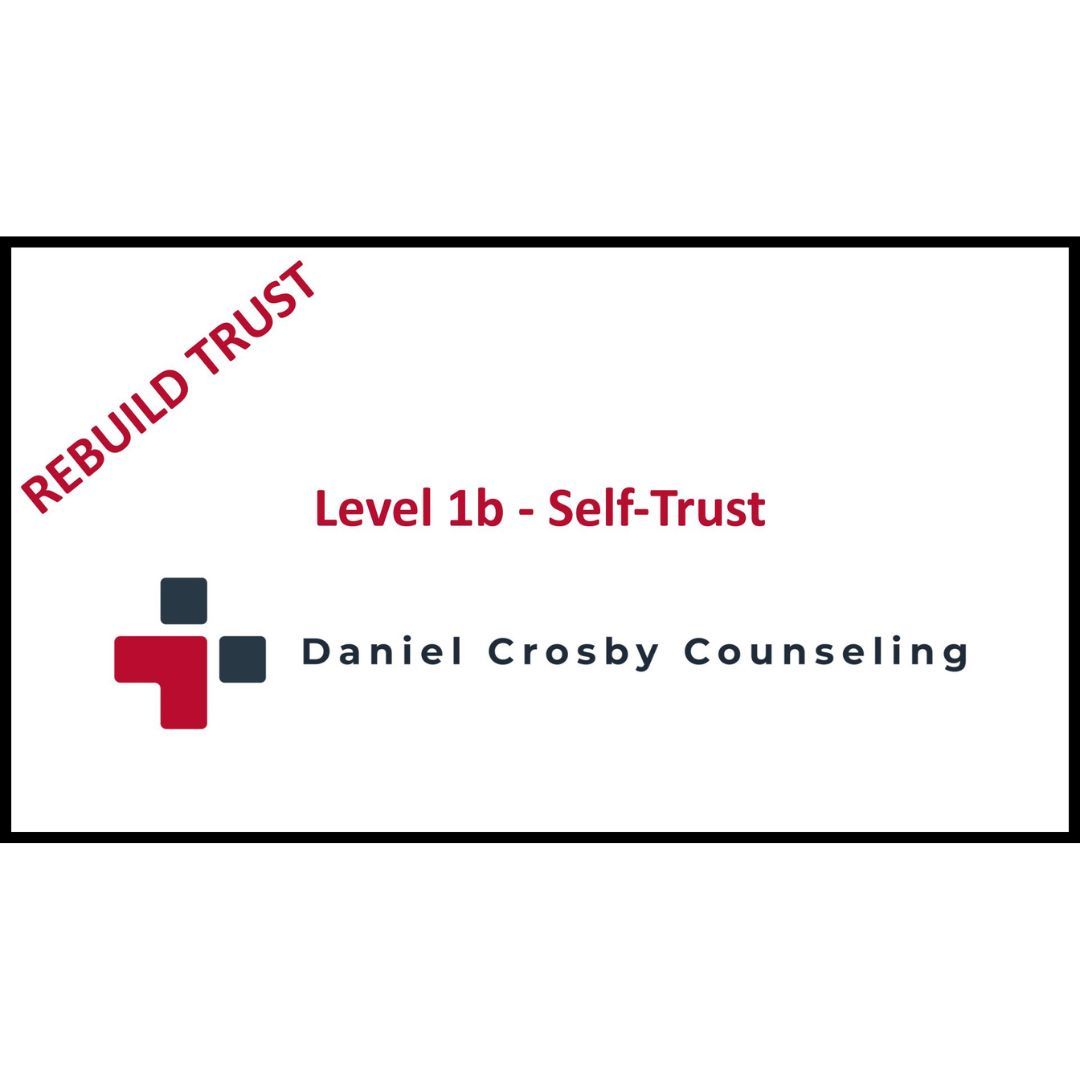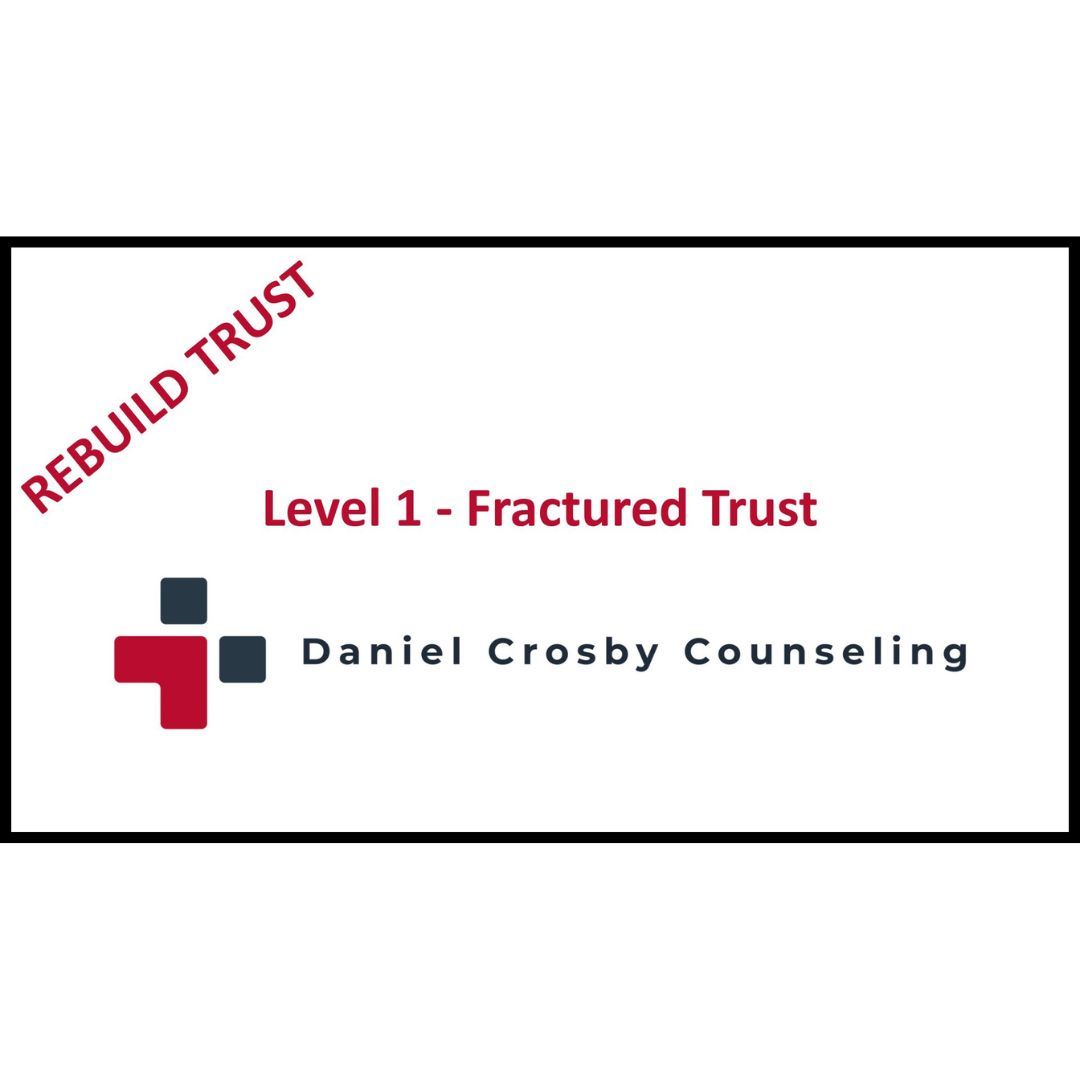Help Heal My Marriage - 9. Walls and Windows
Daniel Crosby • October 15, 2024
9. Walls and Windows
In their book Not “Just Friends,” Glass and Staeheli talk about the concept of “Walls and Windows” in a marriage.
Picture a house with strong exterior walls to keep out invaders. That house is the marriage. Inside of that house each spouse has a separate room. Their room is their life and self-identity. Now picture a big window between the two spouses’ rooms. This is the healthy connection between the two where love and connection flow freely back and forth.
Now picture a struggling marriage where both spouses exchange their window for a wall between the two of them. Then picture one or both spouses putting in a window in the exterior wall where they can begin to exchange love and connection freely with others on the outside.
This is how marriages begin to erode and affairs can even begin.
3 Ways to Protect Your Walls and Windows:
1. Boundaries
Have a conversation with your spouse about what types of behaviors are acceptable or not acceptable within your relationship to protect it. For instance, “A husband might say that he feels uncomfortable with either of them having a casual 1-on-1 lunch with a coworker of the opposite sex. Keep the outside walls solid.
2. Vulnerability
If you’re struggling with beliefs, feelings, or behaviors you must let that information flow freely through the window to your spouse. They can’t know and change what you refuse to share. Keep the window clear and open.
3. Awareness
Regularly check on the window. Ask one another: “Do you feel like you can come to me with things? Are you feeling fulfilled with me?”
Regularly check on the walls. Ask one another: “Are there any concerns you see in us lately that has weakened our walls? What outside forces are pressing in on us and trying to knock us down?”
Go Time:
Discuss this windows and walls concept from Glass and Staeheli together and think about how it may or may not apply to your marriage.
Every day I help hurting frazzled people by walking with them as they get back on the path toward becoming who God created them to be. Shoot me an email if there’s anything I can do to help you or someone you know. daniel@danielcrosbycounseling.com

Level 1b: Self-Trust After betrayal, many people don’t just lose trust in their partner, they lose trust in THEMSELVES. “Did I miss the signs?” “Was I naive?” “Can I ever trust my own judgment again?” Rebuilding self-trust is not about becoming fearful or suspicious of everyone. It’s about reconnecting with your perceptions, instincts, and internal signals and learning to respect them again. Maybe you sensed something was off but talked yourself out of it to preserve the relationship or the family. That doesn’t mean you’re bad it means you were trying to do the right thing and ended up getting bit. This level runs through EVERY stage of trust rebuilding. Even as your partner becomes more consistent, your work is to begin to listen to your inner self again. When self-trust grows, you’re no longer relying entirely on your partner’s behavior to feel safe. You begin to carry safety inside yourself again. For the partner who caused the harm: Be patient. Support your partner in regaining confidence in their own feelings and reality. Avoid defensiveness, minimizing, or anything that resembles gaslighting. For the betrayed partner: Practice trusting your instincts and emotional responses. Recall times when you listened to your gut well. Reestablish what you will and will not accept in a relationship and honor those boundaries consistently.

Level 1: Fractured Trust After a betrayal trust shattered. People in this level say, “Everything feels broken. I don’t know if I can ever trust again.” That makes sense, because betrayal doesn’t just hurt your heart; it disrupts your sense of reality and safety. But you’re still here; still considering what repair might look like. The fact that you haven’t walked away entirely says there’s a part of you that hopes healing might be possible. Level 1 is not about forgiveness or resolution. It’s not about moving on. It’s about honesty, stabilization, and finding safety again. This is also a time to avoid impulsive emotional decisions. You don’t have to decide the future today. You just have to survive today and take good care of yourself. You don’t have to know yet whether trust can be rebuilt. Right now, the only question is: Can we create enough safety for healing to begin? And that… is a powerful place to start. For the partner who caused the harm: Acknowledge the pain without defending, minimizing, or explaining it away. DO NOT SAY: “I didn’t mean to,” or “It wasn’t that bad,” or “You’re overreacting.” SAY THIS: “I see the damage. I take responsibility. I’m willing to repair.” Your tone, attitude, and consistency matter more than your words right now. For the betrayed partner: Your work is not to “get over it,” but to let the pain be real without letting it control your life. Try not to distract or numb yourself to the point that you can’t feel anything. This is where trusted friends, a good therapist, or a pastor can come alongside you to help.

Before we jump into the Levels of Trust, it's important that we have a good working definition of how to rebuild trust. "AUTHENTIC CONSISTENCY WITH TRANSPARENCY OVER TIME" Authentic - This cannot be manipulative, spiteful, fake, or contrived. It is humble, cheerful, and freely given. Consistency - Tell me what you're going to do and then do it. Transparency - Whatever you do, do it wide open. No hidden actions, agendas, or ulterior motives. Time - Do it over and over again for as long as it takes. Focus on this definition as we jump into the Levels next time!

